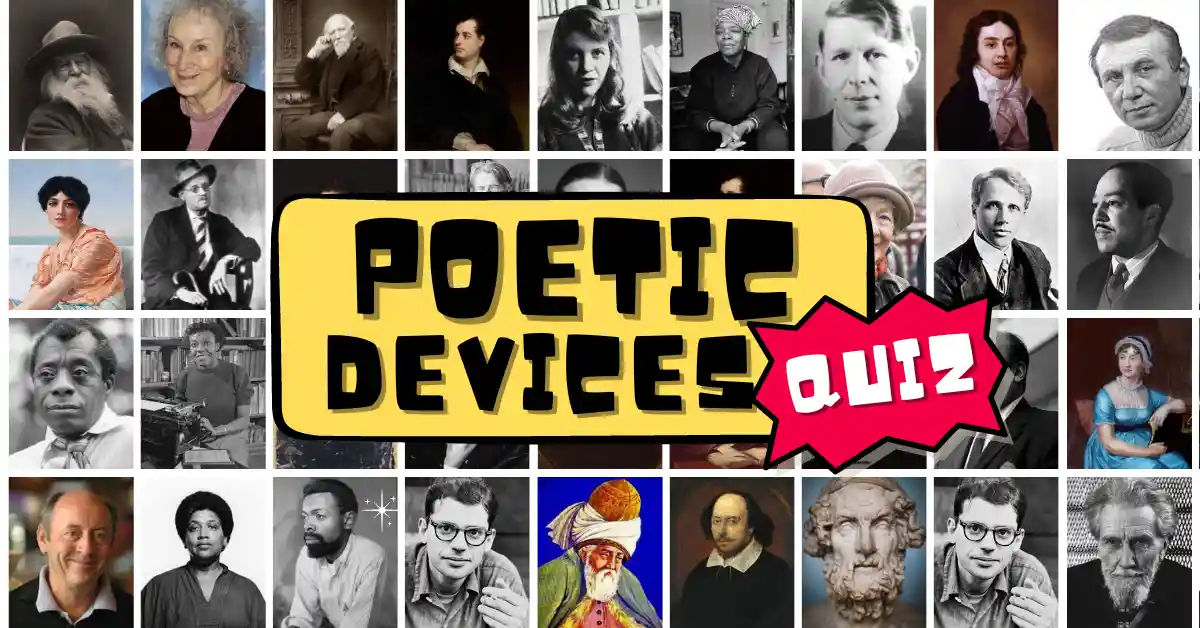Poetic Devices: 20 Multiple-Choice Questions
Welcome to the world of poetry, where words are not just letters on a page, but powerful tools that can evoke emotions and paint vivid images in our minds. In this quiz, we’re going to take a closer look at some of these tools – poetic devices – through a series of multiple-choice questions.
Whether you’re a seasoned poet or just starting out, these questions will challenge your knowledge and help you understand how different techniques can bring your writing to life. So grab a pen and paper, and get ready to dive into the exciting world of poetic devices!
[ays_quiz id=’8′]
Conclusion
As you have gone through the journey of exploring various poetic devices through multiple-choice questions, I hope you now feel more confident about identifying and using them in your own writing. Remember that becoming proficient in the use of poetic devices requires practice and experimentation; so don’t be afraid to try new things and push yourself creatively.
If you would like to continue your exploration of literary techniques, I invite you to explore the rest of the content on our website, which offers a wealth of resources, tutorials, and quizzes on all aspects of literature and writing. And if you want to test your skills again, why not give the quiz another go?
Who knows, maybe you’ll surprise yourself with what you know! Whatever path you choose, remember that engaging with language is an enjoyable and rewarding pursuit that will enrich your mind and expand your horizons. Happy learning!

